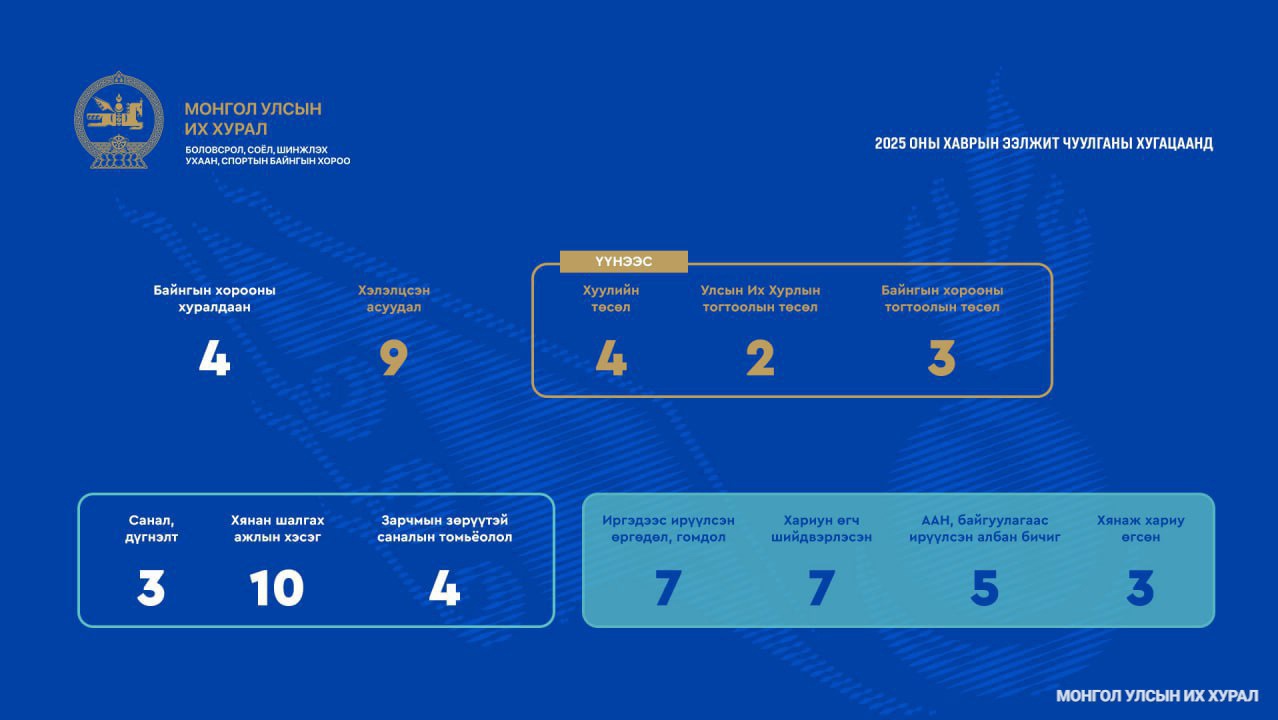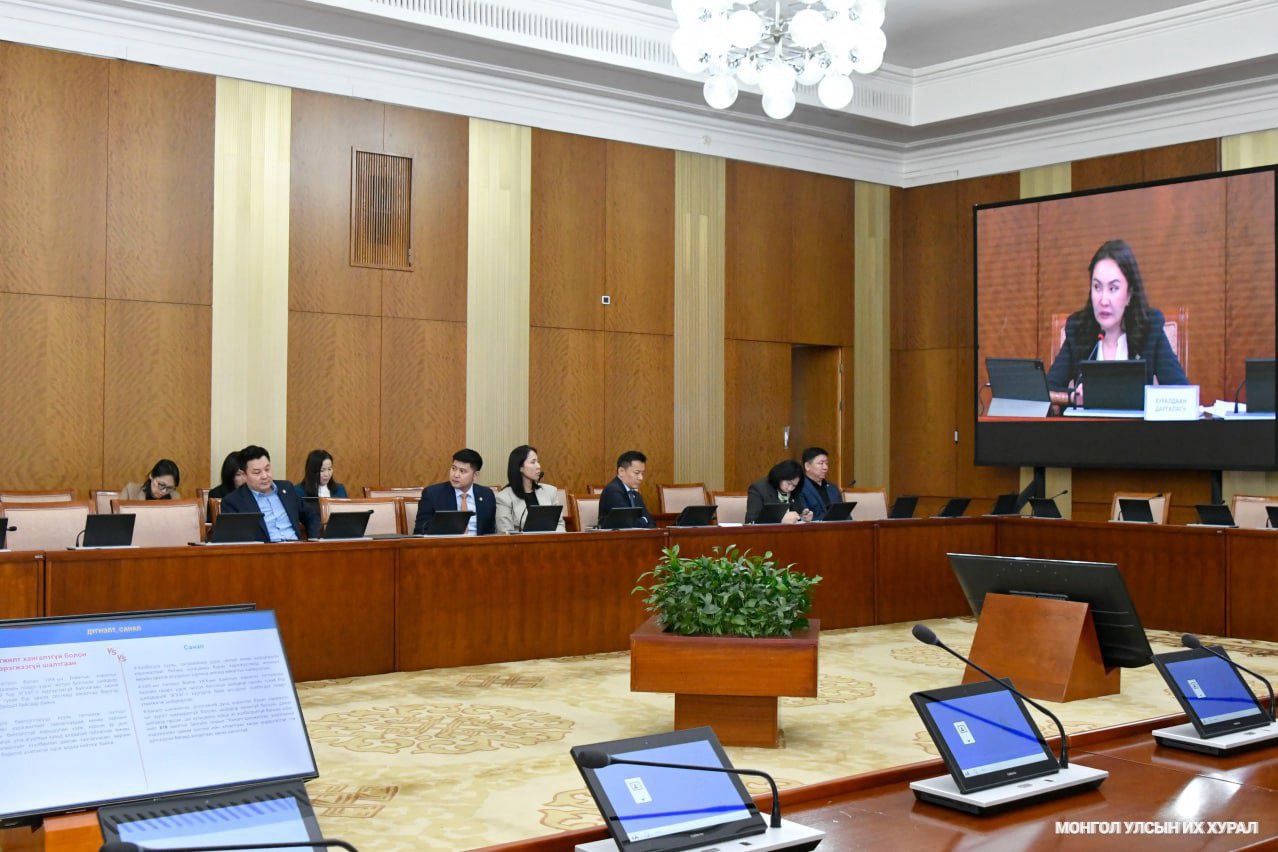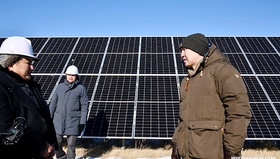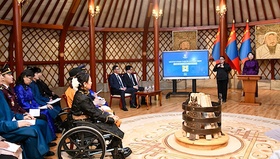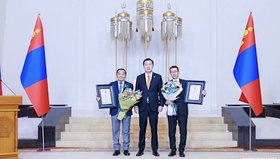During the 2025 Spring Regular Session of the State Great Hural (Parliament) of Mongolia, the Standing Committee on Education, Culture, Science, and Sports convened a total of four times within its jurisdiction, deliberating on nine issues. The Committee reviewed four draft laws and two draft resolutions of the State Great Hural, prepared three opinions and conclusions, as well as four statements of principled dissent.
Additionally, during the regular session, the Committee discussed and adopted three resolutions, including those on “Adding Members to the Working Group” and “Providing Directions.” Furthermore, ten inspection working groups were established and actively operated.
Within the scope of its responsibilities, the Committee also familiarized itself with the activities of the Eastern Campus of the Mongolian National University of Medical Sciences under the framework of the Law on Higher Education. Concurrently, aiming to improve the training environment and conditions for the national team athletes, the Committee held meetings and exchanged views regarding the issues of the Capital City Secondary School of Physical Education and Sports with the State Sports Committee, the Mongolian National Olympic Committee, representatives of the national team, and various sports federations.
According to Resolution No. 1 of 2024 adopted by the Standing Committee, the working group tasked with supporting the replacement of pit latrines at state-owned general education schools, kindergartens, and dormitories with modern sanitary facilities compliant with current standards conducted field visits from April 19 to 22, 2025, in Tuv, Selenge, Orkhon, and Khovsgol provinces.
During the regular session, the Standing Committee also examined the implementation and challenges related to the amendments to the Law on Corporate Income Tax. Within this context, the Committee organized a series of four deliberations in line with the working group's mandate and plan to study issues such as "Social Responsibility and Investment," the implementation of the General Education Law, reducing teacher shortages at all school levels, improving teacher evaluation, and enhancing the management of state-owned general education schools.

 Eng
Eng  Монгол
Монгол